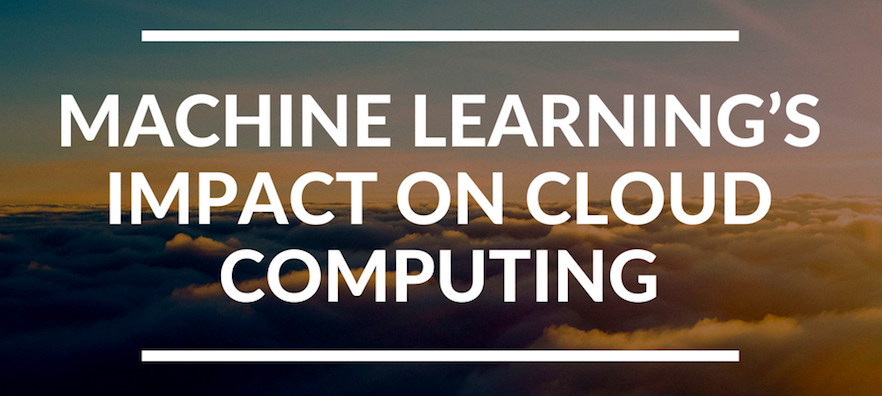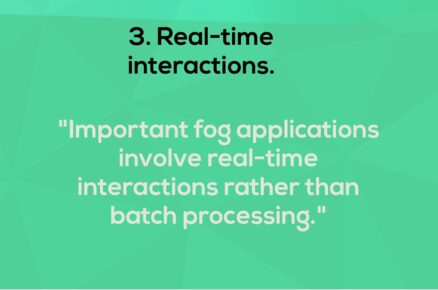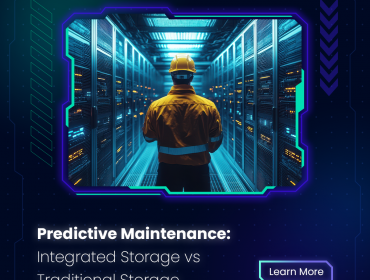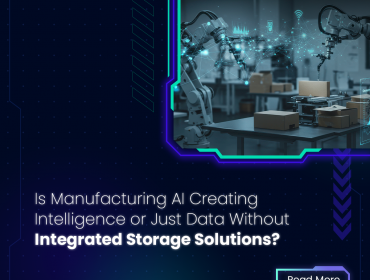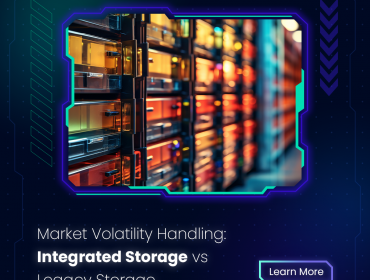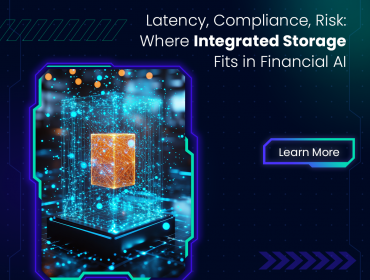When coupled with the power of cloud computing, machine learning could be even more beneficial. This amalgamation is termed ‘the intelligent cloud.’
The current usage of cloud involves computing, storage, and networking. But with the feature of machine learning infused in the cloud, the capabilities of the cloud will increase vastly. The intelligent cloud becomes capable of learning from the vast amount of data stored in the cloud, to build up predictions and analyze situations. This will serve as an intelligent platform to perform tasks much efficiently.
Impact of machine learning on cloud computing
Cloud computing provides two basic prerequisites for running an AI system efficiently and cost-effectively – scalable and low-cost resources (computing and storage mainly) and processing power to crunch huge amounts of data. First, it provides scalable, low-cost computing and secondly, it is a great way to store and process large volumes of data. Therefore, the amalgamation of cloud with machine learning benefits both these disciplines. The impact of machine learning on the cloud is greatest in the following aspects:
Cognitive computing
Machine learning in the cloud does exactly this. The large amounts of data stored in the cloud provide a source of information for the machine learning process. With millions of people using the cloud for computing, storage and networking, the already existing data, the millions of processes that happen every day, all provide a source of information for the machine to learn from. The whole process will provide applications in the cloud with sensory capabilities. The applications will be able to perform cognitive functions and make decisions.
Some examples of cognitive computing in the current market have made remarkable progress in the field of artificial intelligence. IBM Watson, AWS IA, and Microsoft Cognitive APIs have been notable cases in the industry.
Cognitive computing systems in existence today are more at an experimental stage and are given tasks of minimal importance. Over time, we can expect these systems to take over healthcare and hospitality, business and personal lives even.
Personal assistance and chatbots
Personal assistants have made life easier for individuals. Products like Apple Siri, Google Allo, or Microsoft Cortana are pre-coded voice recognition systems that give a feel of human touch to machines. But these personal digital assistants have limited capabilities.
With the mass data on the cloud, the learning capabilities of machine learning, and its cognitive computing feature as mentioned above, personal assistance can almost replace any form of human interaction. Fantasies of owning computer systems like those in science fiction or super-hero movies can become a reality.
Implementing machine learning will increase the cognitive capabilities of these chatbots, giving them a human touch. These chatbots can learn from past conversations and provide better assistance. Not just that, instead of a plain, question-answer session between the customer and the chatbot, a real conversation can take place with the chatbot. The chatbot can initiate queries about previous problems or additional suggestions for the problem at hand. The main aim is to make these chatbots as human and personal as possible to make customers feel important.
Increased demand for cloud
Standing alone, the cloud is on its way to becoming an essential computing commodity in many fields. But the integration of machine learning will increase the need for intelligent clouds in the market. With all the capabilities provided by the intelligent cloud, it is definitely the most disruptive technological change in the market. With ever-increasing competition, the intelligent cloud will become a core necessity in managing big companies and help them stay on top of the competition.
The need for an intelligent cloud in fields like healthcare cannot be over-estimated. It would not act as a replacement for doctors or their procedures. Rather, it can act as a virtual assistant to decide the right methods to be used in the treatment of the patients. The machine can gather years of information on a particular case, make comparisons and recommend new approaches to treatment to make the process easier on the doctors.
Fields like banking, investments, education, etc. could also make use of the intelligent cloud capabilities and make human lives simpler and more efficient.
Business intelligence
Business Intelligence can become smarter with the introduction of machine learning. Figuring out real-time anomalies, identifying and rectifying faults as they are happening and predicting future are some ways that machine learning could help.
The need for proactive analytics and real-time dashboards is currently high. The demand for advanced, predictive analytics that processes previously collected data, makes real-time suggestions or even future predictions is the kind of business intelligence systems the market needs. The integration of Machine learning into cloud computing will help business intelligence systems get better at what they do.
Businesses need their BI to be proactive and not just crunch up numbers. Predictions from current trends and suggestions for actions should be generated by the BI to make things easier on leaders. Machine learning helps Business intelligence reach that goal.
IoT
The opportunities for IoT are endless. From self-driven cars to smart homes to real-time accident predictions, IoT is working towards connecting everything in one web. As the connections and interconnectivity grow, a massive amount of data will be produced. Stored in the cloud, IoT will work better with machine learning.
The Internet of Things will only get better. The system, through machine learning, will be able to identify and rectify problems with systems even before the users will. Warnings about any malfunctioning device can be given out before the defective pieces affect the entire system.
The need for such technology is fast growing and the developments made in the IoT, machine learning, and cloud computing are looking positive in this light.
AI as a service
AI is being provided as a Platform (AIaaS) by cloud providers via open source platforms. This provides users with a chunk of AI tools for necessary functions. AIaaS is said to have potential to be a delivery model which provides fast and cost-effective AI solutions rather than consulting many AI experts to complete a task.
AI as a platform service makes the process of intelligent automation easier on users who do not want to be involved in the complexities of the process. This will further increase the capabilities of cloud computing, in return increasing demand for the cloud.
A future of a symbiotic relationship
An intelligent cloud is a future. The interdependency of cloud computing and artificial intelligence (and humans!) will be the essence of any systems or applications developed in the future.
The risk of computers taking over and the fear of robot apocalypse will keep the human involved and in charge of the machines, hence hindering full automation of machines. After the Facebook AI incident (where two AI systems started communicating with each other in a language unknown to the programmers), the need for control over the interaction between the machines has increased.
But the interdependency will exist as long as humans need technology to make their lives easier. The cloud can help provide AI with the information which they need to learn, while the AI can provide more information, automate and make the cloud better – an intelligent one.
Conclusion
With great strides happening in the development of both machine learning and the cloud, their future seems increasingly tied together. Cloud computing becomes much easier to handle, scale and protect with machine learning. Not just that, the wider the business initiatives get on the cloud, the more the cloud will need machine learning to be integrated, to make it more efficient. There will be a point in time where no cloud will exist without machine learning.


